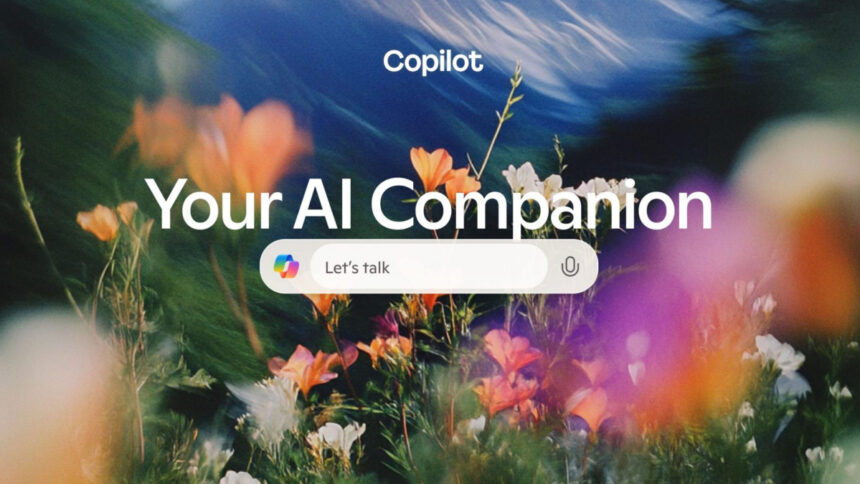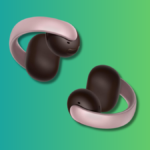Microsoft’s New Features in Copilot: A Comprehensive Overview
The landscape of artificial intelligence is evolving rapidly, with major tech companies introducing substantial enhancements on a weekly basis. Each organization is striving to outpace its competitors by adopting similar features for their AI systems. Microsoft Copilot is now ramping up its efforts to catch up, by rolling out several new capabilities that have either been trialed by Microsoft previously or are already being utilized by alternative AI chat services.
Among the latest additions is the Deep Research functionality, bringing Copilot in line with similar tools offered by its competitors, alongside an upgraded version of Copilot Search. Furthermore, Microsoft has unveiled an AI-hosted podcast generator, which has long been available on rival platforms. The following sections will outline these new features in further detail.
These enhancements were recently announced and will be implemented over the upcoming weeks and months, depending on factors such as platform, market, and language. Currently, only Copilot Search is accessible for trial, but the information provided here represents Microsoft’s complete communication regarding these developments.
Copilot Memory
With the latest updates, Copilot is now capable of retaining more personalized information about its users, resulting in tailored responses. This trade-off between privacy for enhanced convenience means that the AI will avoid suggesting a mushroom recipe if it knows that mushrooms are not to your taste. Additionally, it can recall past anniversary gifts, preventing duplicate purchases.
This feature aligns with recent developments seen in Google’s Gemini and ChatGPT, stirring conversations about the extent of personal data we should be sharing with AI. Microsoft has promised that the Copilot dashboard will include comprehensive privacy settings, allowing users to control what information is retained or to completely opt-out.
Copilot Actions
Copilot is evolving into a more proactive assistant, capable of executing tasks on behalf of its users, such as arranging hotel bookings or purchasing gifts—because having an AI take care of your shopping can show just how much you care. This suite of capabilities, dubbed Copilot Actions, includes partnerships with major platforms like 1-800-Flowers, Booking.com, and Expedia among others.
Essentially, this feature enhances the autofill function: by simply telling Copilot your desired location and timeframe, it can automatically populate all required information—including your address and payment details—on the hotel’s website. Similar to AI agents like Opera’s Browser Operator, this feature carries the potential for substantial utility but also the risk of unexpected outcomes.
Copilot Vision
While Copilot Vision made its initial appearance online last year, it is now being integrated into Windows, Android, and iOS applications. Users will be able to use their device’s camera to identify objects or receive answers about them, essentially allowing the AI to perceive the same environment as the user.
Although AI has long been able to recognize image contents, Copilot Vision introduces real-time analysis and feedback. Moreover, the Windows version of Copilot can analyze the screen content and interact with files and applications when necessary.

Copilot Pages
Copilot Pages offers a workspace similar to a blend of ChatGPT Canvas and ChatGPT Projects, akin to the Notion app, allowing users to centralize various notes and ideas in one location. This tool is perfect for generating content, brainstorming, and managing research initiatives.
This functionality is not entirely new; it has previously been available to businesses using Microsoft 365 Copilot, enabling collaborative efforts similar to working on an extensive shared document with integrated AI capabilities. Now, individual users can also take advantage of this feature.
Copilot Podcasts
The concept of AI-generated podcasts is not alien, with tools from platforms like Gemini and NotebookLM leading the way. Copilot now joins this trend, allowing users to either choose from AI-generated suggestions based on interests or provide specific documents and websites to inspire content.
Additionally, users can interact with the podcasts in real-time, offering an innovative means of diving into subjects beyond the conventional text-based dialogue. This feature reflects the growing capabilities of AI chatbots, making Copilot’s foray into podcast creation unsurprising.

Copilot Deep Research
Microsoft appears to have drawn inspiration from offerings like ChatGPT Deep Research, Perplexity Deep Research, and Gemini Deep Research, to introduce its own version dubbed Deep Research within Copilot. This feature will allow users to specify a topic for Copilot to investigate, after which it will sift through the internet for pertinent articles and materials.
The findings will be synthesized into a well-organized report, giving it an appearance of having been compiled by a human. According to Microsoft, each Deep Research query can take three to six minutes to complete, and users not subscribed to Copilot Pro will be limited to five queries per month.
Copilot Shopping
For those who feel their online shopping could be further enhanced by AI assistance, Copilot has introduced additional features to enhance its deal-finding capabilities. It can now research item specifics and juxtapose them against one another, providing detailed comparisons (for example, comparing the Pixel 9a and the iPhone 16e).
Moreover, Microsoft is set to incorporate direct purchasing links within Copilot, and will enable users to monitor price fluctuations, potentially alerting them to significant savings when prices drop, such as on the Samsung Galaxy S25 Ultra. Currently, this is a strength for Copilot compared to its competitors.
window.videoEmbeds = window.videoEmbeds || [];
window.videoEmbeds.push({
elemId: ‘video-container-X7_02PXumHE’,
data: {“slug”:”X7_02PXumHE”,”start_time”:null,”url”:”https:\/\/www.youtube.com\/watch?v=X7_02PXumHE”},
videoPlayerType: ‘in-content’
});
Copilot Search
Microsoft’s collaboration with Bing has been well-established, but with the introduction of Copilot Search, the company is taking direct action against competitors like Google AI Overviews and ChatGPT Search. Copilot Search aims to provide “intelligently curated information” while minimizing the spread of “potentially misleading information.”
This feature is currently available worldwide, allowing for direct testing. Mirroring offerings from Google and ChatGPT, information is presented in a well-structured format, with citations and sources accessible for users wishing to verify the origins of the provided information.
During a test, Copilot Search successfully identified R.E.M.’s debut album and provided a clear explanation of DNA functionality—citing a “guest author” source from DailyNewsHungary along with Healthline, indicating a need for enhanced source refinement.












